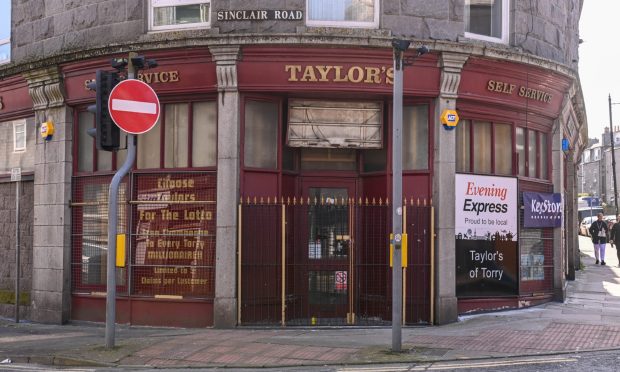Surging energy costs and record inflation continue to cause great uncertainty for Scottish businesses, with many pondering whether they will make it through the winter.
Although economic growth recovered in October, with a small rebound, this is distorted.
It mostly reflects a favourable comparison with September, when the economy was suppressed by the bank holiday to mark the funeral of Her Majesty the Queen.
This positive start to the final quarter of the year is unlikely to prevent recession.
Many feeling the pinch
Consumers and firms continue to feel the pinch, with many concerned for their outlook in 2023.
The chancellor has already expressed concern the current crisis will get worse before it gets better, against a backdrop of a major tightening of the public finances and little relief in the way of personal taxes.
At the same time, businesses are dealing with longer-term challenges as well as the immediate issue of the cost-of-doing-business crisis.
The constant barrier to business growth cited by our members continues to be about our workforce.
Skills shortage barrier
Specifically, Scotland’s major sectors are regularly citing skills shortages, supply of labour and talent attraction and retention as barriers to meeting business demand and growth.
Rebalancing Scotland’s education and skills systems will be a necessary and natural exercise to undertake if we are to continue to produce high quality talent to contribute to Scotland’s economy.
Our response to the #ScottishBudget from @lizcameronscc:
“Whilst the backdrop for today’s statement was already set by the Chancellor Jeremy Hunt in the Autumn Statement, today’s Scottish Budget will not bring much Christmas cheer.”
Read in full: https://t.co/8fX1pkQWHU
— Scottish Chambers (@ScotChambers) December 15, 2022
That rebalancing must be aligned with the needs of the economy, specifically where the future growth and opportunities lie, and not just a narrow exercise to balance government budgets.
One part of Scotland’s skills system which is a shining example of aligning with economic trends and industry demand is apprenticeships and the services delivered by Skills Development Scotland.
From a business perspective, it’s a no-brainer to provide and hire apprentices.
It brings together the real world of work and accredited qualifications, and creates a pipeline of talent for companies in Scotland.
For young people, they experience work on the frontline, build their knowledge, networks and confidence, and receive world-class training.
Apprenticeships ‘key component’
We know demand for skills is high across Scotland’s economy. Apprenticeships, developed by industry, are a key component of developing talent that is ready to participate in the workforce.
Right now there are there 12,000 companies employing apprentices in Scotland.
And there are 43,000 apprentices in training, which is testament to the buy-in of this approach from the private sector.
Added value
The latest statistics provide evidence of the value apprentices bring to businesses.
More than nine in 10 (96%) employers recommend apprenticeships and 87% have stated their intentions to continue offering them in the future.
This is testament to the private sector’s commitment to nurturing the next generation, as well as the value of the partnership between industry and government agencies to closely align skills provision with economic demand.
Looking ahead to the future, “meta” skills will be critical for Scotland’s workforce if we are to grasp the opportunities and navigate the challenges.
By “meta-skills” we mean those uniquely human skills – for example, creativity, curiosity, empathy and communication – which allow people to be adaptive and responsive to the changing requirements of the workplace, regardless of context.
These critical attributes are best nurtured on the frontline through apprenticeships, which provide on-the-job learning, secure pay, professional networks and accredited qualifications.
Apprenticeships are ‘win-win’
Firms recognise that apprenticeships are a tried and tested way to develop the workforce, providing a win-win situation for both businesses and employees.
Scottish Government efforts, through an independent review, to ensure apprenticeships remain flexible and up to date with the differing needs of sectors across the economy are a step in the right direction.
Of course, any recommendations must be fit for today as well as for the future.
Employers’ voices must be at the heart of delivery and a clear shift towards a culture of lifelong learning.
The chamber of commerce network in Scotland has been a longstanding ambassador for apprenticeships and we will continue to champion the benefits they provide to both individuals and businesses.
By developing Scotland’s workforce, businesses can grow and thrive.
Liz Cameron is chief executive of the Scottish Chambers of Commerce.













Conversation